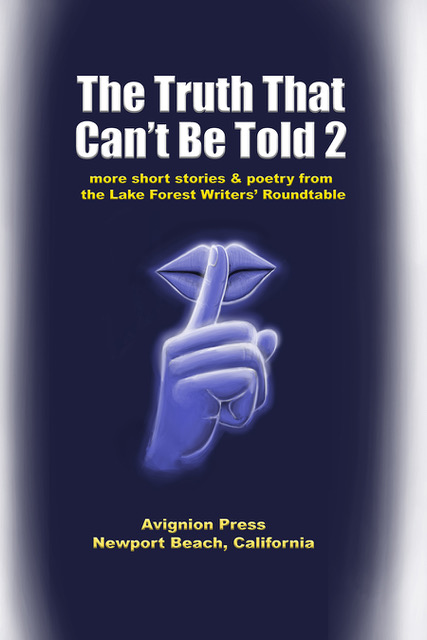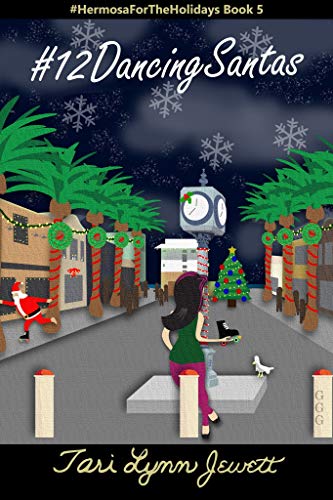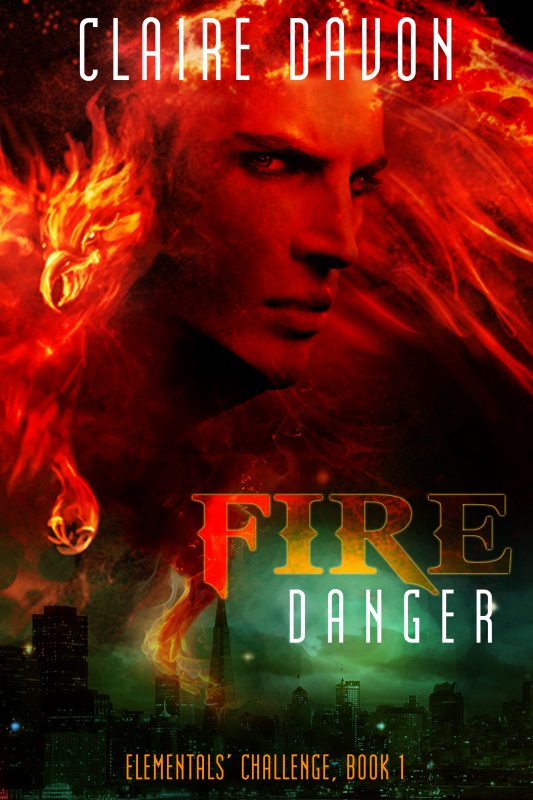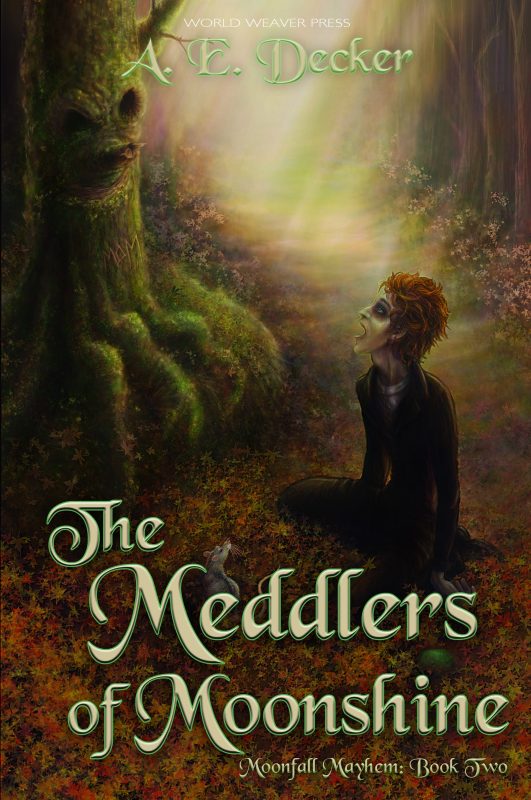Taglines, Copyrights, and Trademarks
September 30, 2019 by A Slice of Orange in category The Extra Squeeze by The Extra Squeeze Team tagged as copyrights, taglines, trademarks
Dear Extra Squeeze Team, I have a tagline I use on all my novels, do I need to get a copyright?

Robin Blakely
PR/Business Development coach for writers and artists; CEO, Creative Center of America; member, Forbes Coaches Council.
Great question. The idea that you are asking this sort of question suggests that you are in the business of writing–not every writer is. Business is important to writers, but often they do not like to think about the business side of creativity. You are thinking about business and that indicates that you have a good chance at making significant money from your creative craft. Part of being in business is protecting your intellectual properties. Before you decide how to best protect your tagline, you need to talk to a lawyer who handles this kind of specialized legal business and can explain the difference between copyrights, trademarks, and patents. Before you talk to that qualified lawyer, you need to gather your information together. The process of gathering your information together will help you find the path you should follow. When you find a potential lawyer, that legal professional will want for you to provide a solid overview of your business concern.
Find the answers to the following questions and you will have a better meet-and-greet with the lawyer during your first consultation.
Your lawyer will ask you these questions:
- What is your exact tagline?
- Exactly how and when have you used the tagline so far?
- In an initial search, when you google your tagline, does any result come up that indicates a potential existing conflict?
- What are your plans to use the tagline in the future?
- How will you routinely protect your tagline in the future?
Here are questions for you to ask the lawyer:
- What is your hourly rate?
- How much will this process cost?
- How long will this take?
- How many other authors have you worked with?
- What exactly will I receive when you are finished with your part?
- What do I have to do to make your part possible?
- Jumping ahead, what are best practices to protect my tagline?
- How will you help me routinely protect my tagline?

Rebecca Forster
USA Today Bestselling author of 35 books, including the Witness series and the new Finn O’Brien series.
This is above my pay grade. You might want to ask an entertainment lawyer. The person I asked suggested it might be a trademark situation.

Jenny Jensen
Developmental editor who has worked for twenty plus years with new and established authors of both fiction and non-fiction, traditional and indie.
US copyright law does not cover tag lines. Short phrases or sentences are not considered original creative work as that would run the risk of actually copyrighting a phrase or word common in the English language. Just imagine what you’d have to pay Nike every time you told your kids to ‘just do it’. And how would anyone enforce that anyway? Maybe big brother has that many eyes but individuals don’t.
You can Trade Mark a tag line. Marketers often do. Be sure you can live with a TM beside your tag line. It’s not something I’ve ever seen but I think it would strike me as officious and send an odd message. Writing is a creative effort as well as a business effort but I don’t want to see overt signs of business in my reading for pleasure choices. Besides, a Trade Mark requires mountains of paperwork and the near impossibility of enforcement.
Dear Extra Squeeze Team: How do I get critiques on my WIP but prevent plagiarism?
June 30, 2019 by The Extra Squeeze in category The Extra Squeeze by The Extra Squeeze Team tagged as copyrights, critiques, HO Charles, Jenny Jensen, Plagiarism, Publishing Questions, Rebecca Forster., Robkin Blakely, The Extra Squeeze, Writing Questions

Dear Extra Squeeze Team: How do I get critiques on my WIP but prevent plagiarism?

Rebecca Forster
USA Today Bestselling author of 35 books, including the Witness series and the new Finn O’Brien series.
In my 30+ year career, I have never worried about plagiarism. Most working authors don’t need to plagiarize your work, they have plenty of their own to worry about. New authors have their own ideas and probably will think they are on a better track with their own ideas. Keep your nose to the grindstone, listen to solid critiques and move forward.

Jenny Jensen
Developmental editor who has worked for twenty plus years with new and established authors of both fiction and non-fiction, traditional and indie.
Jenny is still on vacation time. She be back next month with The Extra Squeeze Team.
Robin Blakely
PR/Business Development coach for writers and artists; CEO, Creative Center of America; member, Forbes Coaches Council.
It is never wrong to take precautions with your work. My best suggestion for preventing plagiarism at the critique stage of the writing process is simple. Don’t share your work with people who have not been vetted in some way to earn your trust. If you doubt the integrity of the people that you are sharing your material with, their opinions about your writing should also be in question. If you have any qualms that your ideas could be stolen by the circle of people you willingly handed your work over to, then tighten your circle. Your work is your business. In any business, great ideas can be at risk of idea theft. Copyrights, trademarks, and non-disclosure agreements all exist to help enforce your rights. Look into those options. But realize that in the critique stage, prevention is a more powerful tool than policing the issue after it happens.
And, on the flip side, protect yourself. Accusations of idea theft or plagiarism is a two-way street. In a critique group, it is important to understand the parameters of collaboration. You may be asking other people to give you their opinions and contribute their ideas to your unfinished piece, but that also has limits that need to be established and clearly understood. It is possible that in a critique setting, your work may be the catalyst for a bigger and better idea than you imagined. If that bigger and better idea comes to light and is identified by someone, it is important to know how to properly handle that situation. It all starts with trusting who is at the table and taking the time to establish and understand the game rules before any of your work is read by anyone.
H.O. Charles
Cover designer and author of the fantasy series, The Fireblade Array
This genuinely is worth considering as ideas get stolen all the time (paranoid, me??). Sometimes plagiarism is not even committed consciously by the perpetrator. We absorb sentences and word structures and ideas all the time as we move through life, so it’s inevitable that we will reproduce bits and pieces of these when we get creative. If you’re sharing your work with a fellow creative, it should be accepted that you are going to influence them at least a little bit. If they churn out whole chunks of an original work or copy an entire plot without acknowledgement, it is quite different.
First, I’d advise using only people you trust to do your first run of read-throughs and critiques. If they’re your friends, they might not be as tough on your work, slightly biased etc., but it’s better than nothing at all. After that, there are copyright registration places if you live in the UK, but they are pointless in my opinion (we do not have a copyright office here – the US does). They won’t act for you legally if someone steals your work, and will take a small fee to register a copy of your work on the date you submit it. But if you have the raw, dated file stored on your computer, then you can just as easily prove you are the owner of the original work anyway. The law is different between the UK and USA, and elsewhere, so it is worth looking into copyright before you share your work with anyone.
Affiliate Links
A Slice of Orange is an affiliate with some of the booksellers listed on this website, including Barnes & Nobel, Books A Million, iBooks, Kobo, and Smashwords. This means A Slice of Orange may earn a small advertising fee from sales made through the links used on this website. There are reminders of these affiliate links on the pages for individual books.
Search A Slice of Orange
Find a Column
Archives
Featured Books
THE TRUTH THAT CAN’T BE TOLD BOOK 2
Unrequited love, quiet shame, guttural fear are the truths we hide from the world…often from those we love the most.
More info →MEDDLERS OF MOONSHINE
Something is rotten in the town of Widget, and Rags-n-Bones knows it's all his fault.
More info →
A CHRISTMAS SAMPLER: Sweet, Funny, and Strange Holiday Tales
Winner of the 2010 Next Generation Indie Book Awards for Best Short Fiction and Best Anthology
More info →Newsletter
Contributing Authors
Search A Slice of Orange
Find a Column
Archives
Authors in the Bookstore
- A. E. Decker
- A. J. Scudiere
- A.J. Sidransky
- A.M. Roark
- Abby Collette
- Alanna Lucus
- Albert Marrin
- Alice Duncan
- Alina K. Field
- Alison Green Myers
- Andi Lawrencovna
- Andrew C Raiford
- Angela Pryce
- Aviva Vaughn
- Barbara Ankrum
- Bethlehem Writers Group, LLC
- Carol L. Wright
- Celeste Barclay
- Christina Alexandra
- Christopher D. Ochs
- Claire Davon
- Claire Naden
- Courtnee Turner Hoyle
- Courtney Annicchiarico
- D. Lieber
- Daniel V. Meier Jr.
- Debra Dixon
- Debra H. Goldstein
- Debra Holland
- Dee Ann Palmer
- Denise M. Colby
- Diane Benefiel
- Diane Sismour
- Dianna Sinovic
- DT Krippene
- E.B. Dawson
- Emilie Dallaire
- Emily Brightwell
- Emily PW Murphy
- Fae Rowen
- Faith L. Justice
- Frances Amati
- Geralyn Corcillo
- Glynnis Campbell
- Greg Jolley
- H. O. Charles
- Jaclyn Roché
- Jacqueline Diamond
- Janet Lynn and Will Zeilinger
- Jaya Mehta
- Jeannine Atkins
- Jeff Baird
- Jenna Barwin
- Jenne Kern
- Jennifer D. Bokal
- Jennifer Lyon
- Jerome W. McFadden
- Jill Piscitello
- Jina Bacarr
- Jo A. Hiestand
- Jodi Bogert
- Jolina Petersheim
- Jonathan Maberry
- Joy Allyson
- Judy Duarte
- Justin Murphy
- Justine Davis
- Kat Martin
- Kidd Wadsworth
- Kitty Bucholtz
- Kristy Tate
- Larry Deibert
- Larry Hamilton
- Laura Drake
- Laurie Stevens
- Leslie Knowles
- Li-Ying Lundquist
- Linda Carroll-Bradd
- Linda Lappin
- Linda McLaughlin
- Linda O. Johnston
- Lisa Preston
- Lolo Paige
- Loran Holt
- Lynette M. Burrows
- Lyssa Kay Adams
- Madeline Ash
- Margarita Engle
- Marguerite Quantaine
- Marianne H. Donley
- Mary Castillo
- Maureen Klovers
- Megan Haskell
- Melanie Waterbury
- Melisa Rivero
- Melissa Chambers
- Melodie Winawer
- Meriam Wilhelm
- Mikel J. Wilson
- Mindy Neff
- Monica McCabe
- Nancy Brashear
- Neetu Malik
- Nikki Prince
- Once Upon Anthologies
- Paula Gail Benson
- Penny Reid
- Peter J Barbour
- Priscilla Oliveras
- R. H. Kohno
- Rachel Hailey
- Ralph Hieb
- Ramcy Diek
- Ransom Stephens
- Rebecca Forster
- Renae Wrich
- Roxy Matthews
- Ryder Hunte Clancy
- Sally Paradysz
- Sheila Colón-Bagley
- Simone de Muñoz
- Sophie Barnes
- Susan Kaye Quinn
- Susan Lynn Meyer
- Susan Squires
- T. D. Fox
- Tara C. Allred
- Tara Lain
- Tari Lynn Jewett
- Terri Osburn
- Tracy Reed
- Vera Jane Cook
- Vicki Crum
- Writing Something Romantic
Affiliate Links
A Slice of Orange is an affiliate with some of the booksellers listed on this website, including Barnes & Nobel, Books A Million, iBooks, Kobo, and Smashwords. This means A Slice of Orange may earn a small advertising fee from sales made through the links used on this website. There are reminders of these affiliate links on the pages for individual books.






































